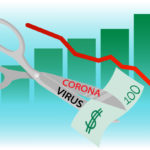Special to the Financial Independence Hub
Living through a global pandemic magnifies the importance of being prepared for the unexpected in your financial future. In light of upcoming months of potential economic instability, whether you have only begun to think about retirement or already have a comprehensive plan, now is the time re-assess your retirement strategy.
The COVID-19 pandemic has added a new level of uncertainty and fear to many retirement portfolios. There is the potential for more volatility or declines in retirement assets resulting in the need to save more prior to retirement, or work longer than originally planned. With that being said, now is not the time to panic. Now is the time to take the time to re-assess, and if necessary, adjust your plans so that your retirement goals stay on track.
Reassessing your plans
A comprehensive financial plan should do a lot more than just forecast returns on your investment assets. Your retirement plan should have a solid foundation that starts with being prepared for the unexpected. For example, having an emergency fund of three to six months income should provide you with a buffer if you lose your job or face a major expense. Life and disability insurance can protect your family from unexpected health issues that would otherwise derail retirement plans. And creating a will ensures the assets you’ve built up will go to the right people.
Once you’ve got your foundation you can turn to your retirement plan. To get started, you should be considering your future cash flow requirements during retirement, and the assets and sources of income that will be available to you. These may include your personal retirement savings, real estate, as well as pensions and government benefits.
Securing your retirement investments
A well diversified investment portfolio is key to battling uncertain times, both now and in the future. Below are some tips to keep in mind to handle volatility:
- Your asset allocation should be based on your own retirement goals and your own risk tolerance. The recent market volatility is a good time to reassess your comfort level with your current allocation. If you have been losing sleep at night over the market volatility be sure to share that with your advisor.
- Regular savings are a great way to dollar cost average into the markets during volatile times and are key to building a retirement nest egg.
- If you are already retired and taking a regular income from your portfolio, consider a cash wedge strategy to set aside 1 to 2 years of income payments to be invested in low volatility assets such as term deposits or high interest savings funds so that you aren’t forced to sell stocks during volatility. This allows you to remain invested and give your portfolio time to recover.
No matter the circumstances, financial planning is an ongoing process, not a one-time event. It should be dynamic and change along with your life. You only get one opportunity to retire right, and working with an experienced financial advisor can help prepare you for life’s unforeseen events, but also take away some of the stress that comes when the unexpected does occur.
 Scott Evans is a Financial Advisor at BlueShore Financial in Vancouver.
Scott Evans is a Financial Advisor at BlueShore Financial in Vancouver.



